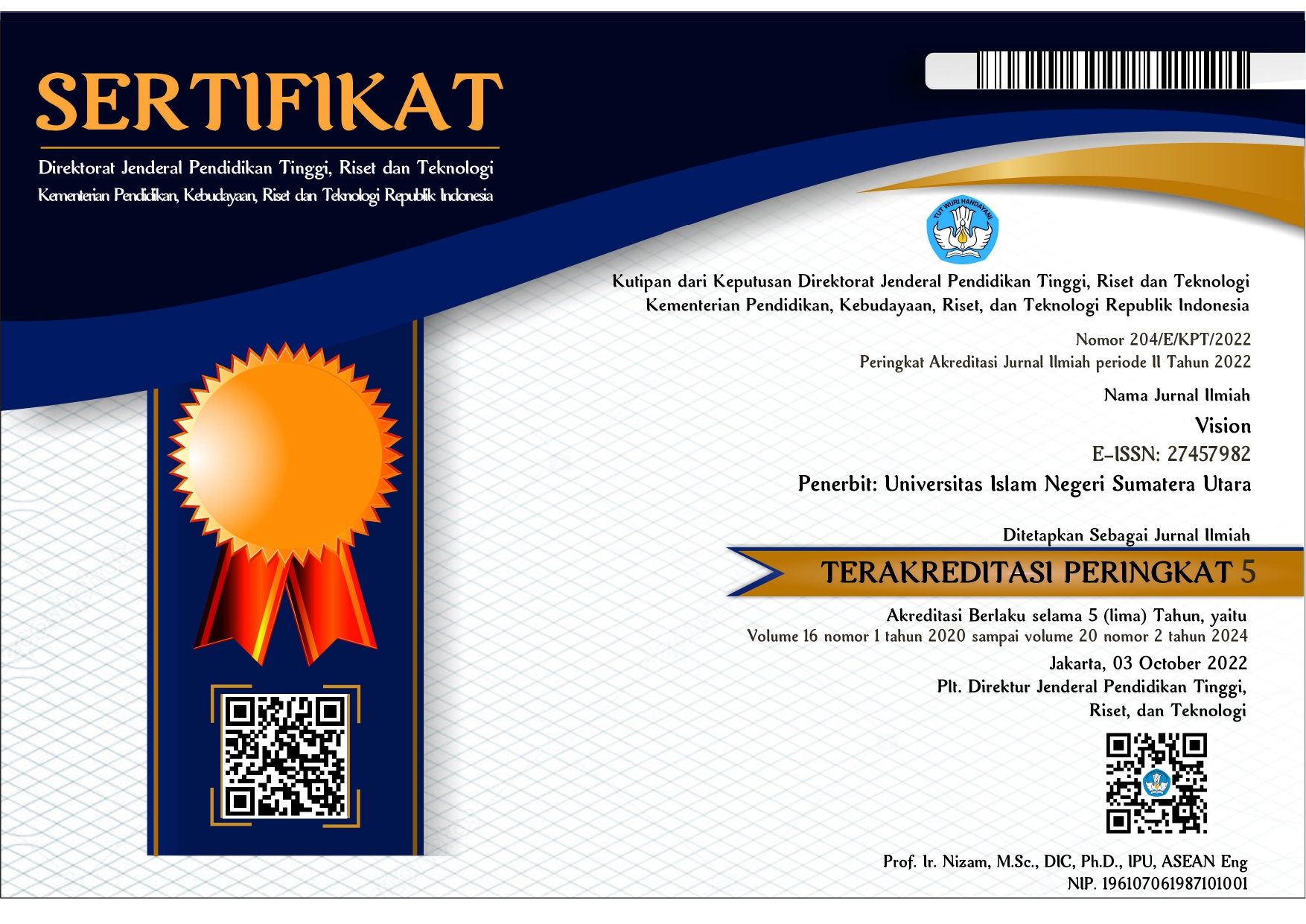ANALYSIS ON STUDENTS’ ENGLISH SPEAKING PERFORMANCE AT UNIVERSITY OF MUHAMMADIYAH SUMATERA UTARA
Abstract
The lack of students’ English-speaking performance seems to
be common problems found in the department of English
education at the University of Muhammadiyah Sumatera
Utara. Those problems involve the lack of fluency and
proficiency in English speaking skills. This study aimed to
analyze the students’ English-speaking performance and the
challenges faced by them. This research applied a descriptive
qualitative design. The data such as the documents,
observation, and interviews were applied. In analyzing the
data concerning the components of data analysis in the
interactive model, it was proposed by Miles and Huberman
(2016). The data were taken questionnaire from 125 EFL of
second-year students were collected, then the researcher also
conducted the individual interviews with lecturers and class
observation. The result showed that the most challenging
factor faced by the students' speaking performance was related
to the students themselves. Speaking errors were frequently
made. The errors dominantly covered into 3 categories namely
misused forms (44.8 %), incorrect omission (33.6%), and
misplaced and confusing words (21.2 %). Concerning the
external factors, the updated teaching strategies should be
applied in terms of reducing the use of the mother tongue by
combining various speaking performances, collaborating with
other lecturers to organize more English programs, and share
the speaking teaching experience.
Full Text:
PDFReferences
Al-Jamal, D. A., & Al-Jamal, G. A. (2014). An Investigation of the Difficulties Faced by EFL Undergraduates in Speaking Skills. English Language Teaching, 7(1), 19-27.
Ariyanti, A. (2016). Psychological factors affecting EFL students’ speaking performance. ASIAN TEFL Journal of Language Teaching and Applied Linguistics, 1(1).
Bachman, L. F., & Palmer, A. S. (2010). Teachers College, Columbia University Working Papers in TESOL & Applied Linguistics, 2010, Vol. 10, No. 2 Book Review. Language
Testing, 10(2), 41–46.
Brown, H. D. (2004). Language Testing Book: Principles and Classroom Practice. Book, 314.
Candraloka, O. R. (2016). Implementing Three Step Interview in Teaching Speaking. Edulingua: Jurnal Linguistiks Terapan dan Pendidikan Bahasa Inggris, 3(1).
Dayat, D. (2017). Analysis on English Speaking Performance : Exploring Students ’ Errors and The Causes. 2(1), 130–133.
Husnawati. (2017). Student’s speaking performance : some challenging factors. 80.
Juhana, J. (2012). Psychological factors that hinder students from speaking in English class (A case study in a senior high school in South Tangerang, Banten, Indonesia). Journal of Education and Practice, 3(12), 100-110.
Manurung, Y. H., & Izar, S. L. (2019). Challenging Factors Affecting Students’ Speaking Performance.
Miles, M. B., & Huberman, M. (2016). a, & Saldana, J.(2014). Drawing and Verying Conclusions. Qualitative Data Analysis: A Methods Sourcebook, 275–322.
Minghe, G. U. O., & Yuan, W. A. N. G. (2013). Affective factors in oral English teaching and learning. Higher Education of Social Science, 5(3), 57-61.
Schwartz, R. L. (2005). Same activity, different focus. Focus on Basics, 8 (November), 7–10.
Souriyavongsa, T., Rany, S., Jafre Zainol Abidin, M., & Lai Mei, L. (2013). Factors Causes Students Low English Language Learning: A Case Study in the National University of Laos. International Journal of English Language Education. 1 (1), 179-192
Tuan, N. H., & Mai, T. N. (2015). Factors Affecting Students’ Speaking Performance at Le Thanh Hien High School. Asian Journal of Educaitonal Research.
V.P., Q., H.T., N., & P.T.M., N. (2018). Challenges to speaking skills encountered byEnglish-majored students: A story of one Vietnamese university in the Mekong Delta. Can Tho University Journal of Science, 54(5)(5), 38. https://doi.org/10.22144/ctu.jen.2018.022
DOI: http://dx.doi.org/10.30829/vis.v16i2.809
Refbacks
- There are currently no refbacks.
Copyright (c) 2020 VISION
















